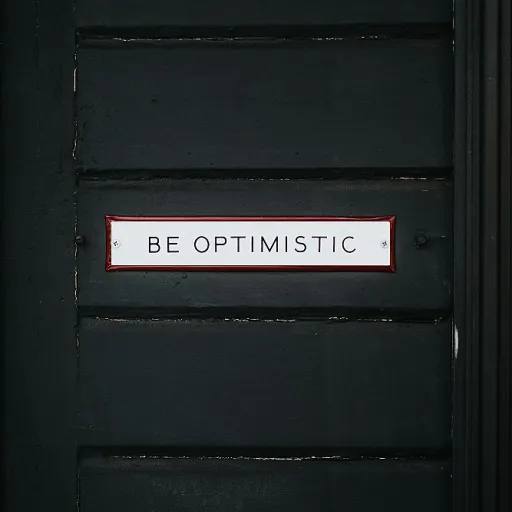Understanding the Role of a Talent Management Coordinator
Job Titles and Coordinated Efforts
The role of a Talent Management Coordinator plays a pivotal part in ensuring effective employee engagement within organizations. Rooted in the realm of human resources, this position involves the seamless integration of talent acquisition, development, and retention strategies. The responsibilities of a Talent Management Coordinator range from analyzing job postings and leveraging social services to optimizing public relations strategies for better recruitment outcomes.
With the ever-evolving landscape of talent management in the United States, coordinators are tasked with bridging the gap between business objectives and employee satisfaction. By mastering key skills in financial planning, administrative duties, and marketing public relations, coordinators craft a robust infrastructure that supports growth and development.
Professionals in this field often collaborate with management specialists to align resources with the overarching goals of the organization. As a result, they directly impact the effectiveness of career talent pathways and ensure that the organization attracts and retains the right talent. Key to their role is understanding analytics to track employee progress and modify strategies for better engagement outcomes.
For those interested in further exploring how a Talent Management Coordinator can enhance employee engagement, we recommend checking out this article on
mastering the art of salary negotiation via email.
Key Strategies for Boosting Employee Engagement
Innovative Approaches to Strengthening Employee Commitment
To enhance employee engagement, it's imperative for organizations to employ robust strategies that align with their overarching human resources and talent management goals. Boosting employee commitment requires a multifaceted approach, encompassing various aspects such as talent acquisition, development, and effective communication.
- Fostering a Culture of Development: Encouraging employees to grow within their roles can significantly improve engagement levels. Coordinators need to craft opportunities for career development. This can include resources for skill development, hands-on job training, or mentorship programs.
- Tailoring Human Resources Initiatives: York or global organizations must design HR initiatives that reflect diverse cultural and individual needs. By doing so, they ensure inclusion and foster stronger team relations across different job titles.
- Utilizing Data and Analytics: Today's business environment necessitates leveraging analytics to fine-tune engagement strategies. Data-driven insights can help coordinators understand employee sentiment, track engagement levels, and adjust the approaches as needed.
- Perfecting Job Postings and Talent Acquisition: Effective use of job postings and acquisition strategies lays the foundation for future engagement. Clearly defined roles attract candidates who resonate with the organization’s ethos, ensuring a better cultural fit and higher initial morale.
- Coordinating Public and Social Services Efforts: Integrating talent management efforts with administrative and public relations functions helps reinforce the organization's reputation, benefiting both current employee engagement and future talent wins.
- Supporting Employee Relations and Business Objectives: The alignment of resources management with business strategies can enhance employee relations. A thriving workplace environment supports both company objectives and employees' personal goals, fostering heightened engagement.
To gain a deeper understanding of unlocking employee potential, visit our
guide to employee success. Every innovative engagement approach contributes to a healthier work atmosphere, proving the undeniable value of employer-employee collaboration.
The Importance of Communication in Talent Management
Facilitating Open Communication Channels
Effective communication is a cornerstone of successful talent management and a critical factor in enhancing employee engagement. Communication starts with the talent coordinators who are responsible for facilitating dialogue between management and employees. This involves creating open channels where employee feedback is encouraged and can be constructively used to inform business strategies.
Engaging employees requires a clear understanding of organizational goals and how each team member's role aligns with these objectives. Coordinators should connect their talent management strategies with the broader goals of the organization to ensure employees are aware of their contributions to the company’s success. To facilitate this, a regular exchange of information through newsletters, team meetings, and one-on-one interactions can prove invaluable.
Utilizing Data and Analytics
Incorporating data analytics within the realm of talent management can significantly bolster communication efforts. By leveraging analytics, human resources and management specialists can gain insights into employee satisfaction, engagement levels, and areas requiring improvement. This data-driven approach allows for tailored communication that acknowledges unique employee needs and fosters a more inclusive work environment.
Through administrative tools and business intelligence software, talent development and human resources teams can track key metrics that reveal employee sentiment trends. This not only aids talent acquisition coordinators in optimizing their recruitment strategies but also in creating better
local team building activities that enhance workplace relationships.
Career Development and Resources
Providing employees with opportunities for career talent development is another crucial element of effective communication in talent management. Talent coordinators should work closely with employees to outline clear career paths and offer resources such as financial planning workshops, training sessions, and mentorship programs that can aid in their professional growth.
The act of openly discussing career aspirations, job titles, and potential postings can motivate employees to take ownership of their professional journey. Public relations and marketing efforts can be oriented towards highlighting these opportunities, further aligning employee roles with organizational growth.
Ultimately, the goal of talent management is not only to fill jobs or roles but to ensure that every individual feels valued and supported within the company. This is driven by the continuous development of human resources and the promotion of transparent and effective communication strategies.
Leveraging Technology for Better Engagement
The Role of Technology in Enhancing Employee Interaction
The modern workplace is evolving at an unprecedented rate, with technology playing a crucial role in various facets of business operations, including talent management. Coordinators and specialists are leveraging technology to foster an environment that nurtures employee engagement. By utilizing digital tools and platforms, companies can streamline administrative tasks, enhance communication, and improve overall employee satisfaction.
Incorporating technology into talent management can assist in several key areas:
- Data Analytics: Advanced analytics provide insights into employee behavior, performance, and overall satisfaction. By interpreting data effectively, management can make informed decisions regarding human resources strategies. This could include understanding trends in talent acquisition or identifying skills gaps that require further development.
- Job Postings and Talent Acquisition: Digital platforms streamline the process of advertising job titles and attracting new talent. Coordinators can craft compelling job postings that reach a broader audience through online marketing channels, effectively filling positions across the united states.
- Career Development: Technology offers opportunities for personalized employee development plans. Through e-learning modules or specialized software, workers can engage in resources management and financial planning tailored to their career goals. This not only boosts engagement but also aids in talent retention.
- Employee Relations and Communication: Online platforms facilitate open communication channels between employees and management. This ensures that any issues related to social services or public relations are addressed promptly, enhancing overall employee morale.
Adopting these technological solutions can transform how businesses manage talent and foster a culture of engagement. Coordinators should remain adaptable, continuously integrating new tools that align with the organization's goals. Balancing these technological advancements with personalized human interaction remains key to successful talent management coordination.
Measuring Employee Engagement Success
Metrics that Matter: Measuring Success
It's essential to evaluate the impact of talent management strategies on employee engagement. Without solid measurement tools, organizations just can’t understand what’s working—or what isn’t.
- Utilize Analytics Tools: By leveraging advanced data analytics, HR teams can gain deeper insights into engagement levels. These tools help in collecting and analyzing data, thereby informing decisions related to human resources and talent development.
- Employee Feedback: Regular surveys and feedback forms are pivotal in gauging the workforce’s sentiments. Coordinators can use this data to identify trends and address issues promptly. Be sure to include clear and concise questions to gather precise feedback.
- Performance Metrics: Evaluate how engagement strategies have impacted job performance, retention rates, and overall productivity. Comparing these metrics over time can show improvement patterns and areas needing attention.
- Benchmarking: Keep an eye on industry standards and see how your organization stacks up. This insight allows talent coordinators to align strategies with the latest trends and best practices.
Utilizing these methods enables organizations to refine their strategies continually, ensuring that talent management processes not only meet but exceed goals. Whether it's through employee relations or more targeted talent acquisition efforts, measuring these elements correctly is crucial to understanding the true value of employee engagement initiatives.
Challenges and Solutions in Talent Management Coordination
Overcoming Obstacles in Talent Management Coordination
The role of talent coordinators in the business landscape of the United States is not without its challenges. Given the complexity of human resources and talent acquisition, coordinators often find themselves navigating a myriad of obstacles which can impede the path to effective employee engagement. Let's delve into some prevalent challenges and the solutions that can steer coordinators towards success in their roles.
-
Data Overload: The sheer volume of data involved in talent management – be it from job postings, employee performance analytics, or talent acquisition metrics – can be overwhelming. Talent coordinators need to have robust data management skills, using resources management tools to efficiently analyze and interpret data, ensuring that relevant insights are leveraged for strategic decisions.
-
Rapid Technological Changes: In the digital era, technology in talent management is constantly evolving. Coordinators must keep pace with new platforms and tools that can enhance worker engagement. Providing continual training and development opportunities for coordinators and leveraging technology smartly can help bridge this gap.
-
Coordination Across Departments: Ensuring seamless coordination between marketing public relations, human resources, and other departments is crucial. Coordinators can act as liaisons, facilitating open communication and collaboration to foster a unified approach towards talent development and employee relations.
-
Lack of Clear Communication Channels: Without strong communication, there's often discord between various branches of administrative functions and the specialist roles required for precise talent management. Developing solid communication strategies is essential, with coordinators playing a key role in disseminating information and maintaining transparency within the organization.
-
Balancing Talent Acquisition and Retention: The dual focus on acquisition coordinator tasks and retention strategies often stretches coordinators thin. It's imperative to create a balance, utilizing analytics to predict future needs and shaping strategies that cater to both acquiring new talent and retaining existing employees.
Despite these challenges, talent management coordinators have the unique opportunity to employ innovative solutions that enhance their organization's engagement levels. By addressing these issues head-on with strategic solutions, the path towards engaged and motivated employees becomes clearer.














